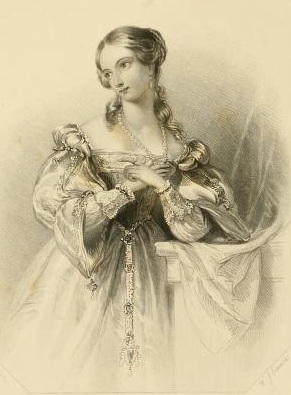| directory |
| home | contact |
|
|||||||||||||||
| search | |||||||||||||||
The Shakespeare Sisterhood: JulietAt first it is the ingenuousness, the almost infantine simplicity, of Juliet's character, which endears her to our hearts. Her extreme youth, her rare beauty, which has been perfected in jealous seclusion; her warm affections, repulsed by her austere parents, running to waste on her old nurse, -- the only familiar object about which they may twine their eager tendrils; and finally, her love for Romeo, born of a glance, a sigh, a touch -- yet, from the moment of its birth, a Titan which shakes to the centre her tender soul: all these constitute a picture, of which the interest and romance are almost too intense.Yet it is not thus -- in the first, happy delirium of her love -- that Juliet engages our profoundest sympathy, our liveliest admiration. Not until Fate seems to have executed its most pitiless freaks upon her solitary heart; not until, her husband banished, she loses her sole friend and confidante, by the discovery of her time-serving baseness -- the only mother, in familiar affection, she has ever known -- and she, for the first time in her young life, asserts her own individuality, invincible through the force of her love, does she command that absorbing interest which would never have been awakened by mere self-abandonment to passion. To use the words of Hazlitt, Juliet is, indeed, "a pure effusion of Nature" -- a woman whose emotions and manifestations are of primeval innocence and vigor -- in whom Love is the outward expression of an instinct as beautiful and holy as it is vehement -- who is "Love itself -- the passion which is her state of being, and out of which she has no existence." In nothing has Shakespeare proved his wondrous skill more clearly than in this creation of a human being in whom sense asserts itself paramount over reason -- indeed, whose only manifestations of intellect are the inspirations of exalted sentiment, a sensuously excited eloquence; and yet who is endowed with such exquisite purity, as distinguished from the false teachings of a conventional modesty, that Eve herself is not more sacred from an imputation of grossness. How to cite this article:___________ Related Articles
|

|
©1999-2021 Shakespeare Online. All Rights Reserved.